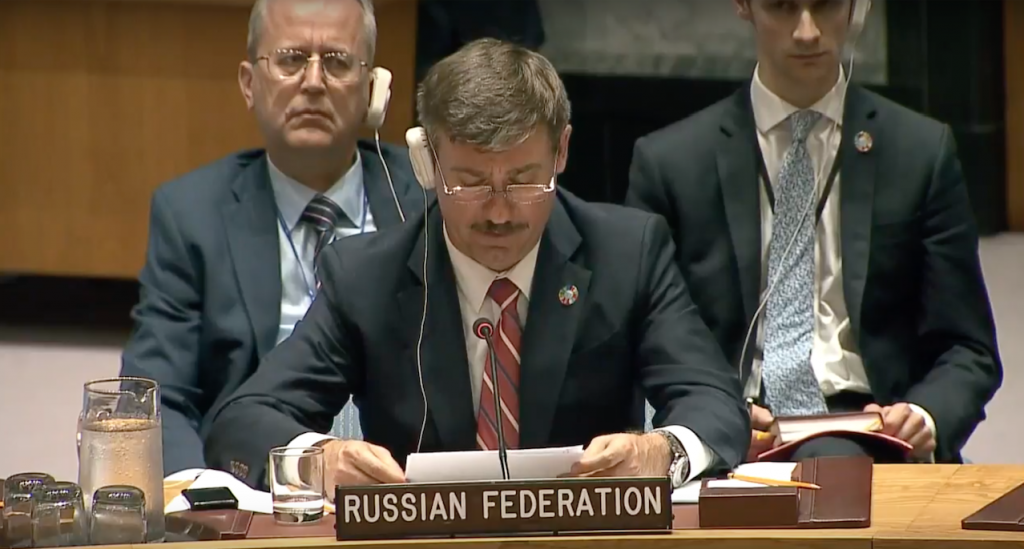Statement by Mr. Petr Iliichev, Chargé d'Affaires, at the Security Council on Maintenance of international peace and security : Preventive diplomacy and transboundary waters
We are pleased to see you, Sir, in the chair of the President of the Security Council.
We thank the Secretary-General for his briefing.
In recent times, we have heard about the issue of water here at the Security Council with enviable regularity. We agree that the issues of access to water resources, their sustainable use, recovery and preservation play an important role because of the timeless importance of water to life, human and economic activity and to maintaining ecosystem balance. As we see it, the discussions and debates on those issues have been valuable and have reaffirmed our understanding that the time has come to move from words to action and to take specific measures that could alleviate the international community’s concerns about water. It would be appropriate to turn to the long-standing outputs of specialized bodies, both within the United Nations and outside of it, that day in and day out use statistical and analytical data and the practical experience of interacting with Member States to implement targeted strategies in the area of water resources that take specific political, geographical and other factors into consideration.
There are many solutions on the surface. They include raising the level of social, economic and scientific and technological development of countries, strengthening their potential in the area of water-resource management and extending financial and technical assistance, while bearing in mind specific needs and development strategies. All of those measures, insofar as they apply to water management, are listed as principal ways of implementing the 2030 Agenda for Sustainable Development and the Addis Ababa Action Agenda of the Third International Conference on Financing for Development. They open up additional opportunities for further cooperation among States on the issue of water resources, while balancing the three dimensions of sustainable development. The International Decade for Action, “Water for Sustainable Development”, 2018-2028, whose proclamation was supported by more than 100 countries, including Russia, can and should become a platform and a catalyst for the implementation of those measures.
A major source of help in the area of water resource management are regional and international legal documents and mechanisms, such as the Convention on the Protection and Use of Transboundary Watercourses and International Lakes, the Lake Chad Basin Commission, the Mekong River Basin Commission and others. In our view, the main issue lies in the fact that the potential of the existing specialized platforms and mechanisms is unjustifiably underestimated and not fully utilized. Instead of guiding countries towards taking mutually acceptable decisions within specialized organizations, we are seeing increasingly frequent attempts to situate transboundary water resources within the context of discussing issues of peace and security. That could lead to their being regulated pursuant to the top-down principle and could also harm the interests of countries concerned. In that regard, we also recall that water, like other national resources, is a subject of national sovereignty.
With regard to the possibility of using preventive diplomacy on water resources, over the decade of its existence preventive diplomacy has proven to be a good tool for reducing tensions when they arise for specific reasons and for guiding situations along an alternative, peaceful course. The main characteristic of preventive diplomacy, and precisely what makes it so useful, is the fact that it is used exclusively at the request of the State concerned and in line with that State’s national strategies. That precludes any automatic recourse to the mechanism and, at the same time, ensures that the sovereignty of the country and its primary right to prevent conflict and overcome its consequences are respected. Therefore, any attempt to dictate under the pretext of preventive assistance could discredit the very idea of so-called preventive diplomacy and result in growing distrust in it on the part of those countries that find themselves a step away from an armed conflict.
